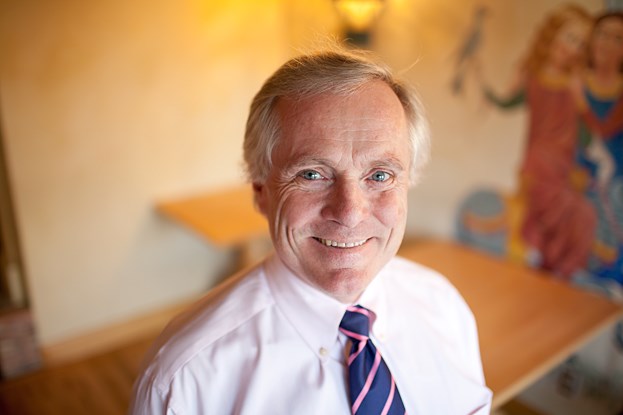Most oil company CEOs eschew publicity or speaking plainly. I don’t know if they are whipped into corporate-speak by their lawyers, boards or public relations people, but generally speaking, they have a very strong filter in place.
And then there’s Michael Binnion, president and CEO of Questerre Energy Corporation for 17 years.
I had a great interview with him on the phone on Dec. 8. The interview stemmed from their recent buy out of their partner in some production near Antler, along the Saskatchewan-Manitoba border. But I’ve had my eye on his company for many years.
Questerre is one of the very, very few companies who have tried very hard for a very long time to turn Quebec into another fossil fuel-producing province. Specifically, they’ve been trying to develop their million-plus acres of land rights into the next big shale gas play. Binnion thinks it will be a giant field.
They’ve drilled 15 wells, and had a discovery in 2008 that just keeps looking better and better as other shale gas plays improve the technology. Instead of a handful of fracs, shale gas operators are now looking at nearly 100, or even more, on longer wells.
Along the way they got swept up in the anti-fossil fuels hysteria in Quebec, the same hysteria that lead to opposition to the Energy East Pipeline. In asking for a regulatory framework they can work within, instead the Quebec government brought in a de facto moratorium on fracking. That was in 2010.
To fight the good fight, Binnion has been working hard on developing the “social licence” to go ahead and develop their play, and along the way, make la belle province self-sufficient in natural gas.
Part of these efforts, which has included a lot of public speaking, is Mike’s Blog, found at the company website, .
On this blog, he’s not afraid to call a spade a spade. On Nov. 10, he wrote, “We have a new resources Minister in Quebec. Everyone is interested what changes this will mean for our file in Quebec. Not least our opponents.
“The minister has repeated clearly the widely held belief there is no social acceptability for fracking in Quebec. The last minister and the premier said the same thing. Let’s be clear: industry and myself also say it.
“If it was socially acceptable why did we go through four years of independent environmental reviews and two public consultations?�� One of the 134 independent studies amusingly discovered that there was no social acceptability.”
Later on, he said, “The main reason is the lack of social acceptability is built on lies and misinformation. Citizens were scared by dramatic claims of fracking lighting taps on fire and other nonsense. It’s like no one remembers this is the reason it became socially unacceptable in the first place. But the claims have been proven false.
“I believe this is the reason the discourse in Quebec has moved away from claims of fracking problems. Credible people and credible media have seen what’s happening in the United States and can’t find the disaster. Just the opposite - the American economy is taking off while its emissions go down.”
That’s just a small sample. The blog is well worth reading.
I asked him about this blog, which is in English and French.
Binnion said, “I used that blog as a way to be able to talk to people in Quebec without being screened by the media. So really, the blog list are opinion leaders and influencers in this debate, in Quebec, and, of course, interested people outside of Quebec who are wanting to follow what’s going on there.
“We had to get our side of the story out, that we couldn’t just turn the other cheek and let oil and gas opponents set the entire agenda. In my view, it was very essential and effective tool, especially in the beginning of the debate, to get those people in Quebec who are willing to do the research, more than reading the newspaper, to get them to realize there was two sides to this debate. Absent me and that blog, I don’t know that there would have been even very hyper-engaged experts who would have realized there was two sides to the story; that it wasn’t just obvious oil and gas was bad for the environment. I was making the case that oil and gas is not bad for the environment. Oil and gas is probably, on a net basis, good for the environment,” he said.
Curiously, that morning, the National Postcarried a story about anti-oil activists proudly taking credit for trashing the personal property of the head of another petroleum company working in the area. Binnion thinks they are vandals and criminals.
“People aren’t interested in corporate-speak anymore,” he said. That’s why our pipelines are being blocked, and that’s why the regulatory burden is going up and the carbon tax is going up. Nobody in industry has ever done anything besides corporate-speak, and the public doesn’t understand it.”
“I think it’s really important that we learn to talk to people. People just want to hear it in plain language.”
Amen.
��
Brian Zinchuk is editor of Pipeline News. He can be reached at [email protected]




